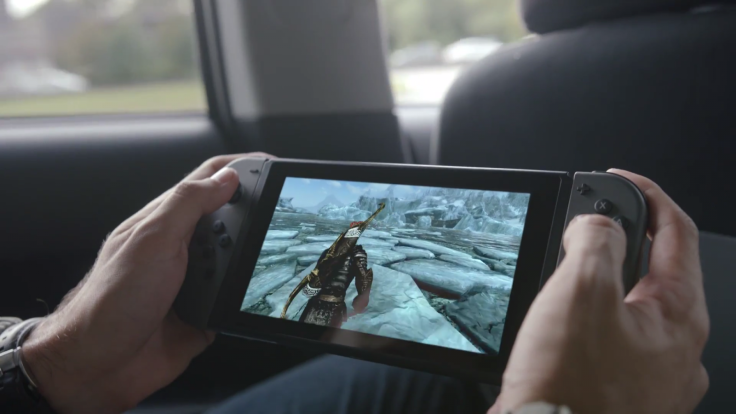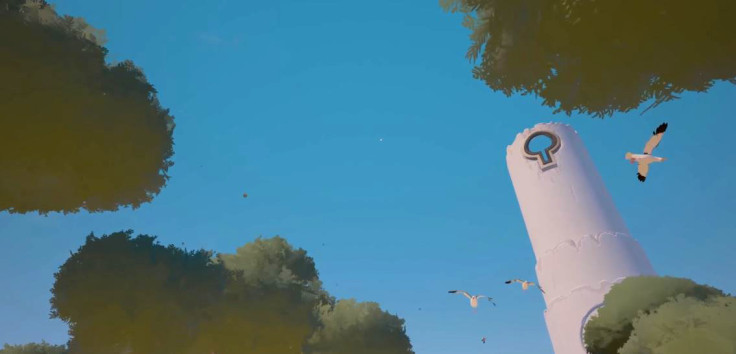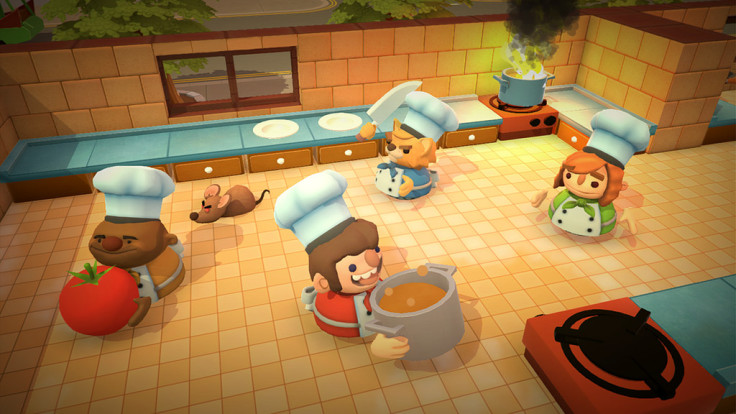How Nintendo is fighting to win back third parties for Switch
Nintendo has gone to great lengths to make its new Switch console appealing to third-party developers.

Before January's Nintendo Switch presentation, the internet was awash with rumours that third-party support was about to come back to Nintendo in a big way. After a glitzy initial reveal trailer showed Western blockbusters like Skyrim and 2K's NBA series running on the intriguing new hardware, it was easy to see why.
Yet while expectations were sky-high that Nintendo's new console would win back AAA publishers, once the presentation came and went it quickly became clear that the Kyoto giant might be failing to deliver on that promise.
Predictably, this led to the usual forecast of doom and gloom for the Switch. Yet the truth is, behind the scenes Nintendo has actually been pursuing third parties more aggressively than ever before.
While the Switch is still underpowered compared to Sony and Microsoft's competing consoles, the first thing Nintendo got right with its upcoming hybrid was leaving the hardware to Nvidia. Seeing the tech company's success with similar devices like the Nvidia Shield, the graphics card manufacturer managed to not only provide Nintendo with a hybrid console that works seamlessly, but also one that is easy to develop for.
Speaking at a recent investor meeting, legendary game developer Shigeru Miyamoto praised the new custom Nvidia hardware, revealing that thanks to the Switch's architecture, "the ease of software development has been felt by Nintendoʼs developers".
While this may not seem particularly important on its own, the extra time saved by having hardware that's easy to develop for has allowed Nintendo to focus on something equally as important. During the same meeting, Miyamoto revealed that since the advent of the Switch, Nintendo's once insular developers have taken the time to experiment with Unreal's graphic toolkits, claiming that the company's developers have now "mastered" Unreal Engine 4.
While its unlikely that Nintendo will stop using its own custom engines any time soon, this is one of the first times the Japanese giant has openly discussed such widely used development tools. Interestingly, that wasn't all that Miyamoto had to say.
In a rare moment of self-criticism, he admitted that Japanese developers are often seen as less technically competent than their Western counterparts. Thanks to the team's recent Unreal Engine mastery however, Miyamoto now believes that Nintendo's engine skills "can be compared with those of Western developers".
The Kyoto giant taking the time to learn the intricacies of such a popular engine could have far-reaching consequences for helping to create tools for external developers.

During the same investors' meeting, managing executive officer Shinya Takahashi hinted at as much, once again showing a glimpse at a more outward-looking Nintendo. "For our previous game platforms, creating our own development tools was a high priority for us," he admits. "However, since the start of Nintendo Switch development we have been aiming to realize an environment in which a variety of different third-party developers are able to easily develop compatible software."
While it's not uncommon for the other platform holders to try and help optimise external engines for their platforms, unbelievably, this is the first time Nintendo has stated that it is actively working to understand a third-party engine. Yet while it seems like a strange thing to get excited about, its developers' new-found understanding of such widely used engines is already having a big impact on Switch. Not only does learning commonly used tech help Nintendo implement more modern techniques into its own software, more importantly, it also enables them to easily understand what its like to be a third-party dev working on the Switch.
Thankfully, it seems that this talk of optimisation is more than just lip service from Nintendo. During a recent interview with Polygon, a spokesperson for Rime publisher Six Foot revealed that a large reason they're supporting the platform is because of how developer friendly it is. While he admits that its slightly lacking specs present their own set of challenges the spokesperson goes on to reveal that the Switch has "certain tools for performance optimization that [have] never existed on Nintendo platforms before".
Its arguably these tools that led to such a great showing today. During this evening's 'Nindie' presentation, the platform holder revealed that more than 60 indie games will be coming to the Switch in its first nine months.

With the Wii U's first year seeing merely 26 download-only games hit its digital storefront, this week's (28 February) presentation almost tripled that in a shorter time frame. Interestingly, Sony's much-touted indie support only saw the PS4's initial digital line-up slightly ahead, receiving just over 70 PSN-only games in the same time frame.
The sheer volume of indie support is a promising sign for a platform that has yet to launch. It's also worth noting that out of those 60 eShop titles, many of the games heading to Switch come from publishers and developers that had previously skipped 3DS and Wii U.
During the presentation we saw Overcooked, The Escapists 2, the announcement of SteamWorld Dig 2 and a whole lot more. Enter the Gungeon, announced shortly after, comes from Devolver Digital and is the publisher's first ever game on a Nintendo platform. Known for their cool and often gratuitously violent software, Devolver is a brilliant if unexpected ally for Nintendo to have on their side at the start of the Switch's lifecycle.
This bulging digital line-up speaks volumes not only about the lengths Nintendo has gone to make Switch an easier platform to work on but also to how proactive the publisher's been in reaching out to external developers. Bethesda is a shining example of this. When Skyrim comes to the Switch later this year, it will be the first time a Bethesda game has appeared on a Nintendo platform since the NES.
While for many gamers a late port of Skyrim may not exactly be a particularly essential addition to a new console's library, it exists purely because of Nintendo's eagerness to demo the hardware to developers as early as possible.
Yet although everything points to a newly humbled Nintendo, the fact of the matter is that the big AAA third-party games still aren't quite there yet. With the success rate of a Nintendo's console launch proving difficult to judge, it looks as though many publishers are waiting to see a solid install base before fully committing.
While we've yet to see how well its strategy will pay off, the run-up to the Switch has undoubtedly shown us a glimpse at a more modern and accommodating Nintendo. Thanks to the humbling failure of the Wii U, it looks as though the Kyoto based publisher now realises that it can no longer just rely on its own IP and a unique gimmick if it is to survive in the hardware business. Yet, whether the Switch succeeds or fails commercially, either way, we're finally see the dawn of a new Nintendo.
For all the latest video game news follow us on Twitter @IBTGamesUK.
© Copyright IBTimes 2025. All rights reserved.






















